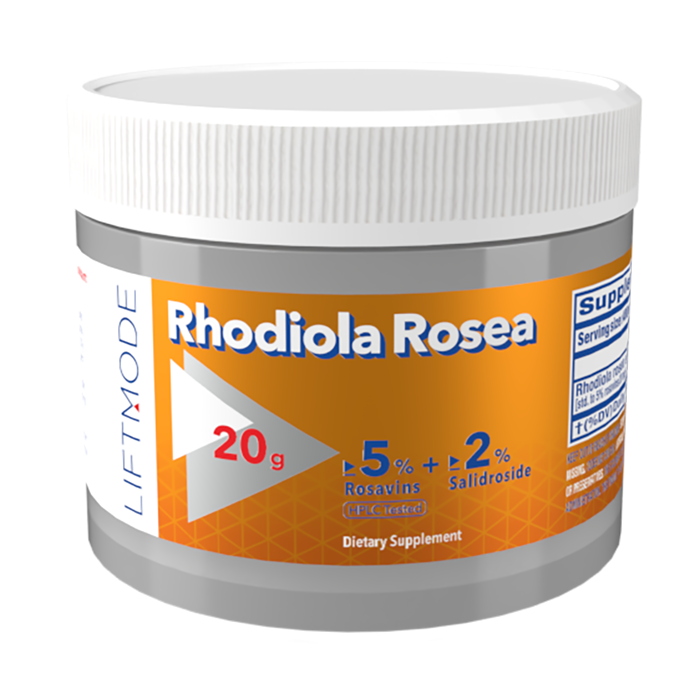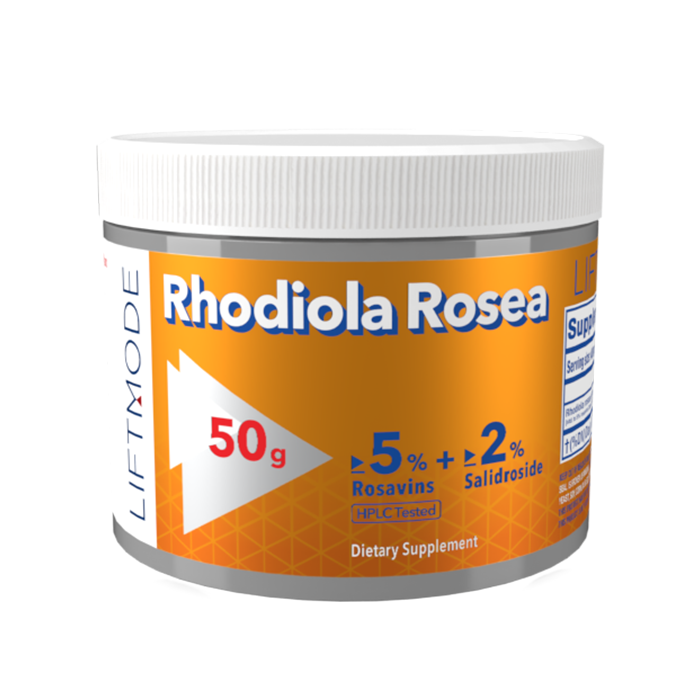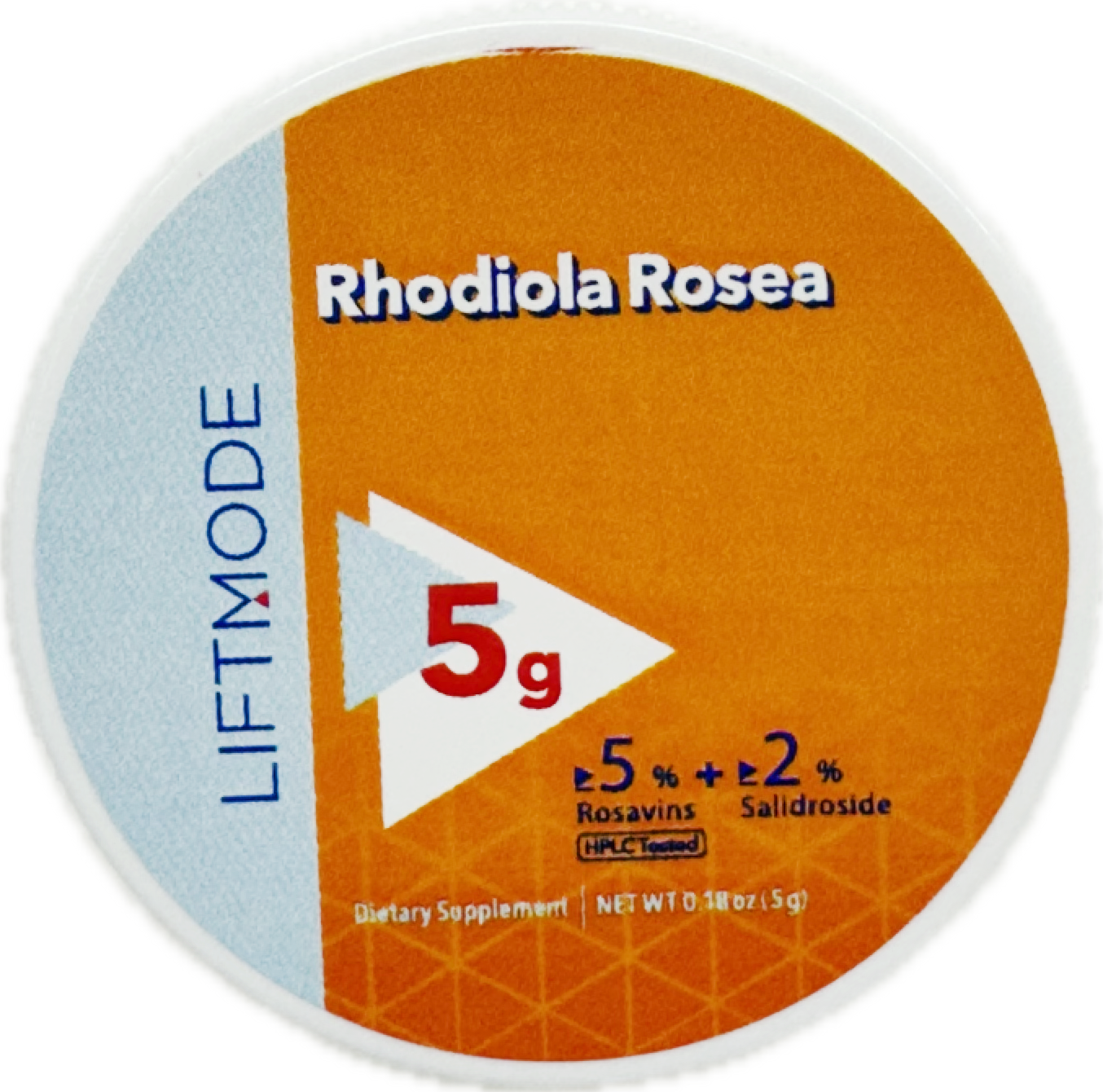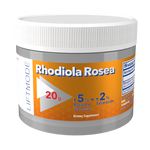Rhodiola Rosea Benefits and Uses
Rhodiola rosea extract has a wide variety of beneficial effects. Studies of Rhodiola in humans point to the herbal extract’s powerful mood-boosting benefits. Many people report benefits on mood, relaxation and focus when taking this supplement. Anecdotally, Rhodiola may also have benefits on stress, and may help to support a healthy immune system.
Almost all herbal extracts contain a wide selection of phytochemicals. Most plants and herbs with physiologically active effects contain a number of active chemicals. The active compounds in Rhodiola rosea extract include:
- Tyrosol – a natural phenolic antioxidant.
- Salidroside (Rhodioloside) – a derivative of Tyrosol with similar antioxidant effects and additional benefits for mood.
- The ‘Rosavins’ (Rosin, Rosarin, and Rosavin) – a group of compounds with similar activity to Salidroside.
- Gossypetin – a flavonoid compound.
- Procyanidins – a set of compounds that are similar to EGCG (from green tea catechins) with strong antioxidant effects.
- β-sitosterol – a fatty-acid compound that is currently used in research.
Rhodiola rosea is known by a number of alternative names, including:
- R.rosea
- Rhodiola roanensis
- Arctic root
- Golden Root
- Hongjingtian
- King’s Crown
- Lignum Rhodium
- Orpin Rose
- Racine d’Or
Scientific Consensus
Rhodiola rosea is plant extract that is considered likely safe for most people when used at the recommended serving size. Side effects may include dizziness, dry mouth, or excessive salivation. Do not exceed the recommended serving size.
Warning: There is not enough research about the safety of L-Tryptophan for pregnant and breastfeeding women. Do not use this supplement if you have any underlying medical conditions – especially autoimmune diseases, low blood pressure, or diabetes.




![Arctic Root Extract [≥5% Rosavins, ≥2% Salidroside] (Rhodiola rosea)](http://liftmode.com/cdn/shop/files/arctic_root.png?v=1729292157)
